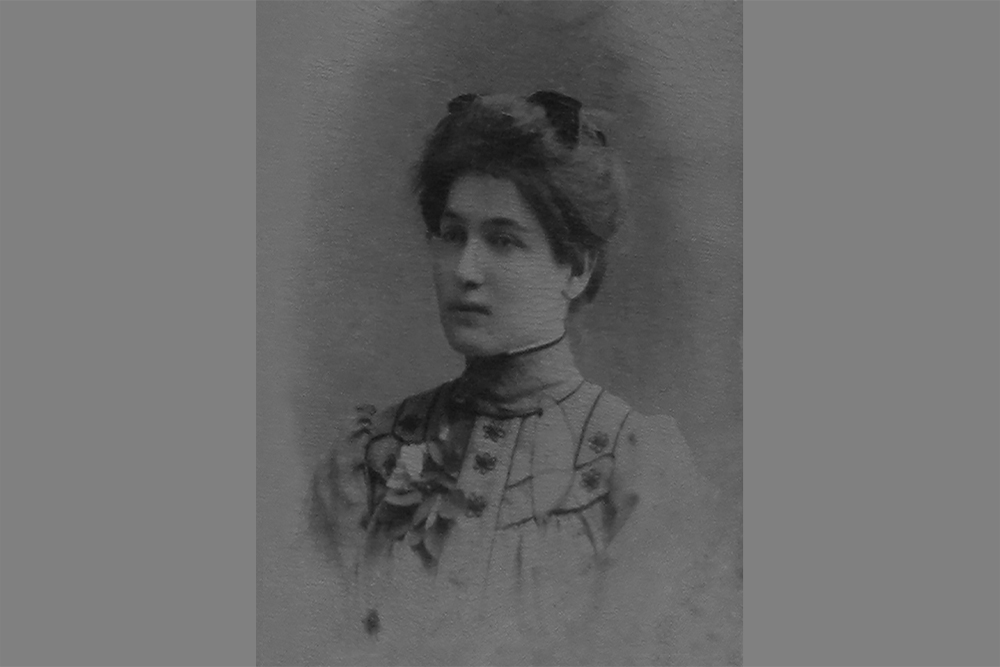Bank of Portraits / Chornovol Volodymyr

Chornovol Volodymyr
Volodymyr Chornovol was born in a wealthy family in the village of Vodiane, Kirovohrad region.
His parents, Mykyta and Feodosiia, worked in agriculture and had three children: Zinaida, Volodymyr and Heorhii. In 1930, the Soviet authorities dispossessed the family. Escaping deportation to Siberia, the husband went to Uman and sent his wife and two sons to the village of Novoarkhanhelsk. In 1933, Feodosiia died of starvation, and two years later Mykyta passed away. Adult Zina wandered to earn money, Volodymr and Heorhii were sent to the orphanage.
The years spent in the orphanage in Zhytomyr region toughened Volodymyr up. After graduating from the teacher course, the young man got a job in the village school. In the summer of 1941, with the approach of German troops, 20-year-old Volodymyr decided to come to his native place.
Accidentally he met an exhausted young man. He said that he was a pilot and when the enemy shot down his plane, he was captured, and then escaped and wandered in the woods for several days. Volodymyr invited the stranger to go to his village together. On the way, a man confessed that he was a Jew, Hryhorii Lantsman, a native of the village of Kamiana Krynytsia in Odesa region and that his family had already been killed. It did not change Volodymyr's decision to help. An orphan's childhood and wandering instilled in his compassion for the plight of others.
The boys reached the village and found the old house of the Chornovols. They registered at the German commandant's office in the village of Dobrovelychkivka. The commandant’s secretary was a local and remembered Volodymyr’s parents well, so he believed the young man when he introduced his acquaintance as Hryhorii Kovalenko, a friend from the orphanage.
"We came up with a legend that we met in an orphanage, that his family was also dispossessed, and his parents were sent to Siberia. I studied to be a teacher, and Hryhorii graduated from a factory school and worked as a locksmith at the factory in Zhytomyr. He lost his documents in a panic when the Germans bombed the city. We learn by heart this story and told it to everyone… Hryhorii spoke Ukrainian well, which also did not arouse suspicion that he was a Jew… The secretary gave us documents - Ausweis. That's how Hryhorii Kovalenko appeared. " From the memoirs of Volodymyr Chornovol.

Young people worked in agriculture. In the autumn of 1943, Hryhorii was captured during the raid and was sent to forced labor in Germany. The man escaped from the assembly point and returned to Vodiane. Later, Volodymyr had to carefully hide his friend and periodically give bribes to the police, because someone in the village reported to the occupation authorities that Hryhorii was a Jew.
"Once Chornovol and Kovalenko were at our house. Suddenly, three drunken German soldiers barged in. One of them immediately pointed to Hryhorii: "Jude!". The situation was saved by Volodymyr, who spoke a little German. He explained to the German that not all the swarthy could be Jews and that it was a bad joke. Volodymyr gave them some homebrew alcohol and food, and the satisfied Germans left. From the memoirs of Volodymyr Zelenskyi, a neighbor
In March 1944, after the expulsion of the Nazis from the village, Hryhorii Lantsman was drafted into the army for the second time and was immediately sent to the penal battalion, where he had to "atone for the guilt" for being in captivity and in the occupied territories. After the first wound, he was reinstated as an officer and allowed to fly. He ended the war in Budapest.
Volodymyr Chornovol continued his work as an educator. In 1946, when Ukrainian peasants were starving, he had to go to Kyiv to earn money. Hryhorii sheltered his savior in the Kyiv apartment on Kostolna Street.
An accidental encounter of two age-mates during the whirlwind of war transformed into a lifelong friendship.
On November 10, 1996, Volodymyr Chornovol was awarded the title of Righteous Among the Nations.
Svitlana Demchenko
Kyiv
National museum of the History of Ukraine in the Second World War
-
fingerprintArtefacts
-
theatersVideo
-
subjectLibrary








